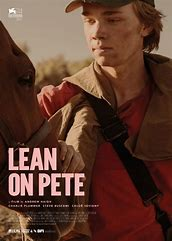Most people over age 20 would probably remember the global financial crisis; I'm 34 and I know I do. It was really the first time I ever took much notice of economic matters, despite my long-standing interest in politics. I just don't find economics or especially finance very interesting. But those matters both affect all of us for better or worse, and it turns out they can be explored engagingly after all.
Against all odds, Charles Ferguson's 2010 Best Documentary Feature Academy Award winner Inside Job proves that flawlessly. But how it does that trick is perhaps even more surprising and significant than that it does the trick: it explores the GFC and the fiscal lead-up to it in five segments, beginning with the aftermath of the Great Depression through to the late 1980s recession following Black Monday and how so many major American banks and investment firms gradually acquired too much unregulated power. They were at least as much at fault as the politicians who turned a blind eye to that corruption and their own, and when these banks and firms began fraudulently charging their customers and investors, the subprime mortgage bubble was bound to burst and the GFC was inevitable when, as the film demonstrates, it could've been avoided so easily. The true root of the crisis was the crimes on Wall Street, not of the White House (although the Bush Administration's bail-out efforts tanked infamously), and how those crimes either were covered up and/or went unpunished.
Against all odds, Charles Ferguson's 2010 Best Documentary Feature Academy Award winner Inside Job proves that flawlessly. But how it does that trick is perhaps even more surprising and significant than that it does the trick: it explores the GFC and the fiscal lead-up to it in five segments, beginning with the aftermath of the Great Depression through to the late 1980s recession following Black Monday and how so many major American banks and investment firms gradually acquired too much unregulated power. They were at least as much at fault as the politicians who turned a blind eye to that corruption and their own, and when these banks and firms began fraudulently charging their customers and investors, the subprime mortgage bubble was bound to burst and the GFC was inevitable when, as the film demonstrates, it could've been avoided so easily. The true root of the crisis was the crimes on Wall Street, not of the White House (although the Bush Administration's bail-out efforts tanked infamously), and how those crimes either were covered up and/or went unpunished.
But Ferguson also explores this territory with genuine panache; I suspect he knew this was a very important story but one covering what most people must find a very dull subject and so he takes a very methodical yet energetic directorial approach and simultaneously deconstructs the very complex factual material therein for viewers who mightn't be financial experts, but never patronisingly. He even also takes a rather Michael Moore-esque approach at times with the use of (relevant) pop music and extensive use of archival news footage, and a helpful narration which Matt Damon, one of the most famously politically vocal Hollywood stars, delivers with appropriate objectivity. The result is an illuminating, confident, angering, unbiased and even stylish expose of how corrupt and fraudulent decisions and agreements made in corporate boardrooms on the other side of the world can create negative ripple effects which, just economics itself, trickle down to the rest of us and, this time, unfortunately did. 9/10.



